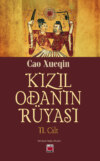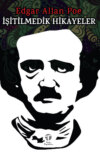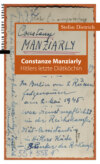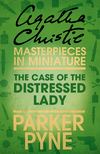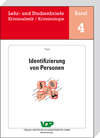Kitabı oku: «Dark Hollow», sayfa 8
XIV
ALL IS CLEAR
"This is my daughter, Judge Ostrander, Reuther, this is the judge."
The introduction took place at the outer gates whither the judge had gone to receive them.
Reuther threw aside her veil, and looked up into the face bent courteously towards her. It had no look of Oliver. Somehow she felt glad. She could hardly have restrained herself if he had met her gaze with Oliver's eyes. They were fine eyes notwithstanding, piercing by nature but just now misty with a feeling that took away all her fear. He was going to like her; she saw it in every trembling line of his countenance, and at the thought a smile rose to her lips which, if fleeting, lent such an ethereal aspect to her beauty that he forgave Oliver then and there for a love which never could be crowned, but which henceforth could no longer be regarded by him as despicable.
With a courteous gesture he invited them in, but stopping to lock one gate before leading them through the other, Mrs. Scoville had time to observe that since her last visit with its accompanying inroad of the populace, the two openings which at this point gave access to the walk between the fences had been closed up with boards so rude and dingy that they must have come from some old lumber pile in attic or cellar.
The judge detected her looking at them.
"I have cut off my nightly promenade," said he. "With youth in the house, more cheerful habits must prevail. To-morrow I shall have my lawn cut, and if I must walk after sundown I will walk there."
The two women exchanged glances. Perhaps their gloomy anticipations were not going to be realised.
But once within the house, the judge showed embarrassment. He was conscious of its unfitness for their fastidious taste and yet he had not known how to improve matters. In his best days he had concerned himself very little with household affairs, and for the last few years he had not given a thought to anything outside his own rooms. Bela had done all—and Bela was pre-eminently a cook, not a general house-servant. How would these women regard the disorder and the dust?
"I have few comforts to offer," said he, opening a door at his right and then hastily closing it again. "This part of the house is, as you see, completely dismantled and not—very clean. But you shall have carte blanche to arrange to your liking one of these rooms for your sitting-room and parlour. There is furniture in the attic and you may buy freely whatever else is necessary. I don't want to discourage little Reuther. As for your bedrooms—" He stopped, hemmed a little and flushed a vivid red as he pointed up the dingy flight of uncarpeted stairs towards which he had led them. "They are above; but it is with shame I admit that I have not gone above this floor for many years. Consequently, I don't know how it looks up there or whether you can even find towels and things. Perhaps you will go up first, Mrs. Scoville. I will stay here while you take a look. I really, couldn't have a strange cleaning-woman here, or any one who would make remarks. Have I counted too much on your good-nature?"
"No; not at all. In fact, you simply arouse all the housekeeping instincts within me. I will be down in a minute. Reuther, I leave you with the judge."
She ran lightly up. The next instant they heard her sneeze, then they caught the sound of a window rattling up, followed by a streak of light falling slant-wise across the dismal stairs.
The judge drew a breath of relief and led Reuther towards a door at the end of the hall.
"This is the way to the dining-room and kitchen," he explained. "I have been accustomed to having my meals served in my own room, but after this I shall join you at table. Here," he continued, leading her up to the iron door, "is the entrance to my den. You may knock here if you want me, but there is a curtain beyond, which no one lifts but myself. You understand, my dear, and will excuse an old man's eccentricities?"
She smiled, rejoicing only in the caressing voice, and in the yearning, almost fatherly, manner with which he surveyed her.
"I quite understand," said she; "and so will mother."
"Reuther," he now observed with a strange intermixture of gentleness and authority, "there is one thing I wish to say to you at the very start. I may grow to love you—God knows that a little affection would be a welcome change in my life—but I want you to know and know now, that all the love in the world will not change my decision as to the impropriety of a match between you and my son Oliver. That settled, there is no reason why all should not be clear between us."
"All is clear."
Faint and far off the words sounded, though she was standing so near he could have laid his hand on her shoulder. Then she gave one sob as though in saying this she heard the last clod fall upon what would never see resurrection again in this life, and, lifting her head, looked him straight in the eye with a decision and a sweetness which bowed his spirit and caused his head in turn to fall upon his breast.
"What a father can do for a child, I will do for you," he murmured, and led her back to her mother, who was now coming down stairs.
A week, and Deborah Scoville had evolved a home out of chaos. That is, within limits. There was one door on that upper story which she had simply opened and shut; nor had she entered the judge's rooms, or even offered to do so. The ban which had been laid upon her daughter she felt applied equally to herself; that is for the present. Later, there must be a change. So particular a man as the judge would soon find himself too uncomfortable to endure the lack of those attentions which he had been used to in Bela's day. He had not even asked for clean sheets, and sometimes she had found herself wondering, with a strange shrinking of her heart, if his bed was ever made, or whether he had not been driven at times to lie down in his clothes.
She had some reason for these doubtful conclusions. In her ramblings through the house she had come upon Bela's room. It was in a loft over the kitchen and she had been much amazed at its condition. In some respects it looked as decent as she could expect, but in the matter of bed and bedclothes it presented an aspect somewhat startling. The clothes were there, tossed in a heap on the floor, but there was no bed in sight nor anything which could have served as such.
IT HAD BEEN DRAGGED OUT. Evidences of this were everywhere; dragged out, and down the narrow, twisted staircase which was the only medium of communication between the lower floor and this loft. As she noted the marks made by its passage down the steps, the unhappy vision rose before her of the judge, immaculate in attire and unaccustomed of hand, tugging at this bed and alternately pushing and pulling it by main strength down this contracted, many-cornered staircase. A smile, half pitiful, half self-scornful curved her lips as she remembered the rat-tat-tat she had heard on that dismal night when she clung listening to the fence, and wondered now if it had not been the bumping of this cot sliding from step to step.
But no! the repeated stroke of a hammer is unmistakable. He had played the carpenter that night as well as the mover, and with no visible results. Mystery still reigned in the house for all the charm and order she had brought into it; a mystery which deeply interested her, and which she yet hoped to solve, notwithstanding its remoteness from the real problem of her existence.
XV
THE PICTURE
NIGHT! and Deborah Scoville waiting anxiously for Reuther to sleep, that she might brood undisturbed over a new and disturbing event which for the whole day had shaken her out of her wonted poise, and given, as it were, a new phase to her life in this house.
Already had she stepped several times to her daughter's room and looked in, only to meet Reuther's unquiet eye turned towards hers in silent inquiry. Was her own uneasiness infectious? Was the child determined to share her vigil? She would wait a little longer this time and see.
Their rooms were over the parlour and thus as far removed as possible from the judge's den. In her own, which was front, she felt at perfect ease, and it was without any fear of disturbing either him or Reuther that she finally raised her window and allowed the cool wind to soothe her heated cheeks.
How calm the aspect of the lawn and its clustering shrubs. Dimly seen though they were through the leaves of the vines she had but partially clipped, she felt the element of peace which comes with perfect quiet, and was fain to forget for awhile the terrors it so frequently conceals. The moon, which had been invisible up to this moment, emerged from skurrying clouds as she quietly watched the scene; and in an instant her peace was gone and all the thronging difficulties of her position came rushing back upon her in full force, as all the details of the scene, so mercifully hidden just now, flashed again upon her vision.
Perched, as she was, in a window overlooking the lane, she had but to lift her eyes from the double fence (that symbol of sad seclusion) to light on the trees rising above that unspeakable ravine, black with memories she felt strangely like forgetting to-night. Beyond … how it stood out on the bluff! it had never seemed to stand out more threateningly!… the bifurcated mass of dismal ruin from which men had turned their eyes these many years now! But the moon loved it; caressed it; dallied with it, lighting up its toppling chimney and empty, staring gable. There, where the black streak could be seen, she had stood with the judge in that struggle of wills which had left its scars upon them both to this very day. There, hidden but always seen by those who remembered the traditions of the place, mouldered away the walls of that old closet where the timorous, God-stricken suicide had breathed out his soul. She had stood in it only the other day, penned from outsiders' view by the judge's outstretched arms. Then, she had no mind for bygone horrors, her own tragedy weighed too heavily upon her; but to-night, as she gazed, fascinated, anxious to forget herself, anxious to indulge in any thought which would relieve her from dwelling on the question she must settle before she slept, she allowed her wonder and her revulsion to have free course. Instead of ignoring, she would recall the story of the place as it had been told her when she first came to settle in its neighbourhood.
Spencer's Folly! Well, it had been that, and Spencer's den of dissipation too! There were great tales—but it was not of these she was thinking, but of the night of storm—(of the greatest storm of which any record remained in Shelby) when the wind tore down branches and toppled down chimneys; when cattle were smitten in the field and men on the highway; when the old bridge, since replaced, buckled up and sank in the roaring flood it could no longer span, and the bluff towering overhead, flared into flame, and the house which was its glory, was smitten apart by the descending bolt as by a Titan sword, and blazed like a beacon to the sky.
This was long before she herself had come to Shelby; but she had been told the story so often that it was quite as vivid to her as if she had been one of the innumerable men and women who had crowded the glistening, swimming streets to view this spectacle of destruction. The family had been gone for months, and so no pity mingled with the excitement. Not till the following day did the awful nature of the event break in its full horror upon the town. Among the ruins, in a closet which the flames had spared, they found hunched up in one corner, the body of a man, in whose seared throat a wound appeared which had not been made by lightning or fire. Spencer! Spencer himself, returned they knew not how, to die of this self-inflicted wound, in the dark corner of his grand but neglected dwelling.
And this was what made the horror of the place till the tragedy of the opposite hollow added crime to crime, and the spot became outlawed to all sensitive citizens. Folly and madness and the vengeance of high heaven upon unhallowed walls, spoke to her from that towering mass, bathed though it was just now in liquid light under the impartial moon.
But as she continued to survey it, the clouds came trooping up once more, and the vision was wiped out and with it all memories save those of a nearer trouble—a more pressing necessity.
Withdrawing from the window, she crept again to Reuther's room and peered carefully in. Innocence was asleep at last. Not a movement disturbed the closed lids on the wax-like cheek. Even the breath came so softly that it hardly lifted the youthful breast. Repose the most perfect and in the form of all others the sweetest to a tender mother, lay before her and touched her already yearning heart to tears. Lighting a candle and shielding it with her hand, she gazed long and earnestly at Reuther's sweet face. Yes, she was right. Sorrow was slowly sapping the fountain of her darling's youth. If Reuther was to be saved, hope must come soon. With a sob and a prayer, the mother left the room, and locking herself into her own, sat down at last to face the new perplexity, the monstrous enigma which had come into her life.
It had followed in natural sequence from a proposal made by the judge that some attention should be given his long-neglected rooms. He had said on rising from the breakfast table—(the words are more or less important):
"I am really sorry to trouble you, Mrs. Scoville; but if you have time this morning, will you clean up my study before I leave? The carriage is ordered for half-past nine."
The task was one she had long desired to perform, and would have urged upon him daily had she dared, but the limitations he set for its accomplishment struck her aghast.
"Do you mean that you wish to remain there while I work? You will be choked, Judge."
"No more than I have been for the last two days. You may enter any time." And going in, he left the door open behind him.
"He will lock it when he goes out," she commented to herself. "I had better hasten."
Giving Reuther the rest of the work to do, she presently appeared before him with pail and broom and a pile of fresh linen. Nothing more commonplace could be imagined, but to her, if not to him, there underlay this especial act of ordinary housewifery a possible enlightenment on a subject which had held the whole community in a state of curiosity for years. She was going to enter the room which had been barred from public sight by poor Bela's dying body. She was going to see—or had he only meant that she was to have her way with the library—the room where she had already been and much of which she remembered. The doubt gave a tremulous eagerness to her step and caused her eye to wander immediately to that forbidden corner soon as she had stepped over the threshold.
The bedroom door was open;—proof that she was expected to enter there. Meanwhile, she felt the eye of the judge upon her and endeavoured to preserve a perfect composure and to sink the curious and inquiring woman in the diligent housekeeper.
But she could not, quite. Two facts of which she immediately became cognisant, prevented this. First, the great room before her presented a bare floor, whereas on her first visit it had been very decently, if not cheerfully, covered by a huge carpet rug. Secondly, the judge's chair, which had once looked immovable, had been dragged forward into such a position that he could keep his own eye on the bedroom door. Manifestly she was not to be allowed to pursue her duties unwatched. Certainly she had to take more than one look at the every-day implements she carried to retain that balance of judgment which should prevent her from becoming the dupe of her own expectations.
"I do not expect you to clean up here as thoroughly as you have your own rooms up stairs," he remarked, as she passed him. "You haven't the time, or I the patience for too many strokes of the broom. And Mrs. Scoville," he called out as she slipped through the doorway, "leave the door open and keep away as much as possible from the side of the room where I have nailed up the curtain. I had rather not have that touched."
She turned with a smile and nodded. She felt that she had been set to work with a string tied round her feet. Not touch the curtain! Why, that was the one thing in the room she wanted to touch; for in it she not only saw the carpet which had been taken up from the floor of the study, but a possible screen behind which anything might lurk—even his redoubtable secret.
Or had it another and much simpler explanation? Might it not have been hung there merely as a shield to the window. The room must have a window and there was none to be seen elsewhere. It would be like him to shut out light and air. She would ask.
"There is no window," she observed, looking back at the judge.
"No," was his short reply.
Slowly she set down her pail. One thing was settled. It was Bela's cot she saw before her—a cot without any sheets. These had been left behind in the dead negro's room, and the judge had been sleeping just as she had feared, wrapped in a rug and with uncovered pillow. This pillow was his own; it had not been brought down with the bed. She hastily slipped a cover on it, and without calling any further attention to her act, began to make up the bed.
Conscious that the papers he made a feint of reading were but a cover for his watchfulness, she moved about in a matter-of-fact way and did not spare him the clouds of dust which presently rose before her broom. She could have managed it more deftly,—would have done so at another time, but it was her express intention just now to make him move back out of her way, if only to give her an opportunity to disturb by a backward stroke of her broom the folds of the carpet-rug and learn if she could what lay hidden behind it.
But the judge was impervious to discomfort. He coughed and shook his head, but did not budge an inch. Before she had begun to put things in order, the clock struck the half-hour.
"Oh!" she protested, with a pleading glance his way, "I'm not half done."
"There's another day to follow," he dryly remarked, rising and taking a key from his pocket.
The act expressed his wishes; and she was proceeding to carry out her things when a quick sliding noise from the wall she was passing, drew her attention and caused her to spring forward in an involuntary effort to catch a picture which had slipped its cord and was falling to the floor.
A shout from the judge of "Stand aside, let me come!" reached her too late. She had grasped and lifted the picture and seen—
But first, let me explain. This picture was not like the others hanging about. It was a veiled one. From some motive of precaution or characteristic desire for concealment on the part of the judge, it had been closely wrapped about in heavy brown paper before being hung, and in the encounter which ensued between the falling picture and the spear of an image standing on a table underneath, this paper had received a slit through which Deborah had been given a glimpse of the canvas beneath.
The shock of what she saw would have unnerved a less courageous woman.
IT WAS A HIGHLY FINISHED PORTRAIT OF OLIVER IN HIS YOUTH, WITH A BROAD BAND OF BLACK PAINTED DIRECTLY ACROSS THE EYES.
XVI
"DON'T! DON'T!"
In recalling this startling moment, Deborah wondered as much at her own aplomb as at that of Judge Ostrander. Not only had she succeeded in suppressing all recognition of what had thus been discovered to her, but had carried her powers of self-repression so far as to offer, and with good grace too, to assist him in rehanging the picture. This perfection of acting had its full reward. With equal composure he excused her from the task, and, adding some expression of regret at his well-known carelessness in not looking better after his effects, bowed her from the room with only a slight increase of his usual courteous reserve.
But later, when thought came and with it a certain recollections, what significance the incident acquired in her mind, and what a long line of terrors it brought in its train!
It was no casual act, this defacing of a son's well-loved features. It had a meaning—a dark and desperate meaning. Nor was the study-wall the natural home of this picture. An unfaded square which she had noted on the wall-paper of the inner room showed where its original place had been. There in full view of the broken-hearted father when he woke and in darksome watchfulness while he slept, it had played its heavy part in his long torment—a galling reminder of—what?
It was to answer this question—to face this new view of Oliver and the bearing it had on the relations she had hoped to establish between him and Reuther, that she had waited for the house to be silent and her child asleep. If the defacing marks she had seen meant that the cause of separation between father and son lay in some past fault of Oliver himself, serious enough for such a symbol to be necessary to reconcile the judge to their divided lives, she should know it and know it soon. The night should not pass without that review of the past by which alone she could now judge Oliver Ostrander.
She had spoken of him as noble; she had forced herself to believe him so, and in profession and in many of his actions he had been so, but had she ever been wholly pleased with him? To go back to their first meeting, what impression had he made upon her then? Had it been altogether favourable and such as would be natural in one of his repute? Hardly; but then the shock of her presentation to one who had possibly seen her under other and shameful conditions had been great, and her judgment could scarcely have full play while her whole attention was absorbed in watching for some hint of recognition on his part.
But when this apprehension had vanished; when quite assured that he had failed to see in the widowed Mrs. Averill the wife of the man who had died a felon's death in Shelby, had her spirits risen and her eyes cleared to his great merits as she had heard them extolled by people of worth and intellectual standing? Alas, no. There had been something in his look—a lack of spontaneity which had not fitted in with her expectations.
And in the months which followed, when as Reuther's suitor she saw him often and intimately—how had she regarded him then? More leniently of course. In her gratification at prospects so far beyond any she had a right to expect for her child, she had taken less note of this successful man's defects. Peculiarities of conversation and manner which had seemed to bespeak a soul far from confident in its hopes, resolved themselves into the uneasy moods of a man who had a home he never visited, a father he never saw.
But had she been really justified in this easy view of things? If the break between his father and himself was the result of nothing deeper than a difference of temperament, tastes or even opinions, why should he have shrunk with such morbid distaste from all allusions to that father? Was it natural? She may have looked upon it as being so in the heyday of her hopes and when she had a secret herself to hide, but could she so degrade her judgment now?
And what of his conduct towards Reuther? Had that been all her mother heart could ask of a man of his seemingly high instincts? She had assured his father in her first memorable interview with him that it had been perfectly honourable and above all reproach. And so it had been as far as mere words went. But words are not all; it is the tender look, the manly bearing, the tone which springs from the heart which tells in great crises; and these had all been lacking. Generous as he attempted to show himself, there was nothing in his bearing to match that of Reuther as she took her quiet leave of him and entered upon a fate so much bitterer for her than for him.
This lack of grace in him had not passed unnoted by her even at the time, but being herself so greatly in fault she had ascribed it to the recoil of a proud man from the dread of social humiliation. But it took another aspect under the strong light just thrown upon his early life by her discovery in the room below. Nothing but some act, unforgivable and unforgettable would account for that black mark drawn between a father's eyes and his son's face. No bar sinister could tell a stronger tale. But this was no bar sinister; rather the deliberate stigmatising of one yet loved, but banned for a reason which was little short of—Here her conclusions stopped; she would not allow her imagination to carry her any farther.
Unhappy mother, just as she saw something like a prospect of releasing her long-dead husband from the odium of an unjust sentence, to be shaken by this new doubt as to the story and character of the man for whose union with her beloved child she was so anxiously struggling! Should it not make her pause? Should she not show wisdom in giving a different meaning from any she had hitherto done, to that stern and inexorable dictum of the father, that no marriage between the two could or should ever be considered?
It was a question for which no ready answer seemed possible in her present mood. Better to await the time when some move had to be made or some definite decision reached. Now she must rest,—rest and not think.
Have any of us ever made the like acknowledgment and then tried to sleep? In half an hour Mrs. Scoville was again upon her feet, this time with a determination which ignored the hour and welcomed night as though it were broad noon day.
There was a room on this upper floor into which neither she nor Reuther had ever stepped. She had once looked in but that was all. To-night—because she could not sleep; because she must not think—she was resolved to enter it. Oliver's room! left as he had left it years before! What might it not tell of a past concerning which she longed to be reassured?
The father had laid no restrictions upon her, in giving her this floor for her use. Rights which he ignored she could afford to appropriate. Dressing sufficiently for warmth, she lit a candle, put out the light in her own room and started down the hall.
If she paused on reaching the threshold of this long-closed room, it was but natural. The clock on Reuther's mantel had sent its three clear strokes through the house as her hand fell on the knob, and to her fearing heart and now well-awakened imagination these strokes had sounded in her ear like a "DON'T! DON'T!" The silence, so gruesome, now that this shrill echo had ceased, was poor preparation for her task. Yet would she have welcomed any sound—the least which could have been heard? No, that were a worse alternative than silence; and, relieved of that momentary obsession consequent upon an undertaking of doubtful outcome, she pushed the door fully open and entered.
A smother of dust—an odour of decay—a lack of all order in the room's arrangements and furnishings—even a general disarray, hallowed, if not affected, by time—for all this she was prepared. But not for the wild confusion—the inconceivable litter and all the other signs she saw about her of a boy's mad packing and reckless departure. Here her imagination, so lively at times, had failed her; and, as her eye became accustomed to the semi-obscurity, and she noted the heaps of mouldering clothing lying amid overturned chairs and trampled draperies, she felt her heart grow cold with a nameless dread she could only hope to counteract by quick and impulsive action.
But what action? Was it for her to touch, to rearrange, to render clean and orderly this place of unknown memories? She shrank with inconceivable distaste from the very idea of such meddling; and, though she saw and noted all, she did not put out so much as a finger towards any object there till—There was an inner door, and this some impulse drove her to open. A small closet stood revealed, empty but for one article. When she saw this article she gave a great gasp; then she uttered a low PSHAW! and with a shrug of the shoulders drew back and flung to the door. But she opened it again. She had to. One cannot live in hideous doubt, without an effort to allay it. She must look at that small, black article again; look at it with candle in hand; see for herself that her fears were without foundation; that a shadow had made the outline on the wall which—
She found herself laughing. There was nothing else to do. SHE with thoughts like these; SHE, Reuther's mother! Verily, the early hours of morning were unsuited for any such work as this. She would go back to her own room and bed—But she only went as far as the bureau where she had left the candlestick, which having seized, she returned to the closet and slowly, reluctantly reopened the door. Before her on the wall hung a cap,—and it was no shadow which gave it that look like her husband's; the broad peak was there. She had not been mistaken; it was the duplicate of the one she had picked up in the attic of the Claymore Inn when that inn was simply a tavern.
Well, and what if it was!—Such was her thought a moment later. She would take down the cap, set it before her and look at it till her brain grew clear of its follies.
But after she had it in her hand she found herself looking anywhere but at the cap. She stared at the floor, the walls about, the desk she had mechanically approached. She even noticed the books lying about on the shelves before her and took down one or two, to glance at their title-pages in a blind curiosity she could not account for the next minute. Then she found herself looking into a drawer half drawn out and filled with all sorts of heterogeneous articles: sealing-wax, a roll of pins, a pen-holder, a knife—A KNIFE! Why should she recoil again at that? Nothing could be more ordinary than to find a knife in the desk-drawer of a young man! The fact was not worth a thought; yet before she knew it, her fingers were creeping towards this knife, had picked it up from among the other scattered articles, had closed upon it, let it drop again, only to seize hold of it yet more determinedly and carry it straight to the light.

